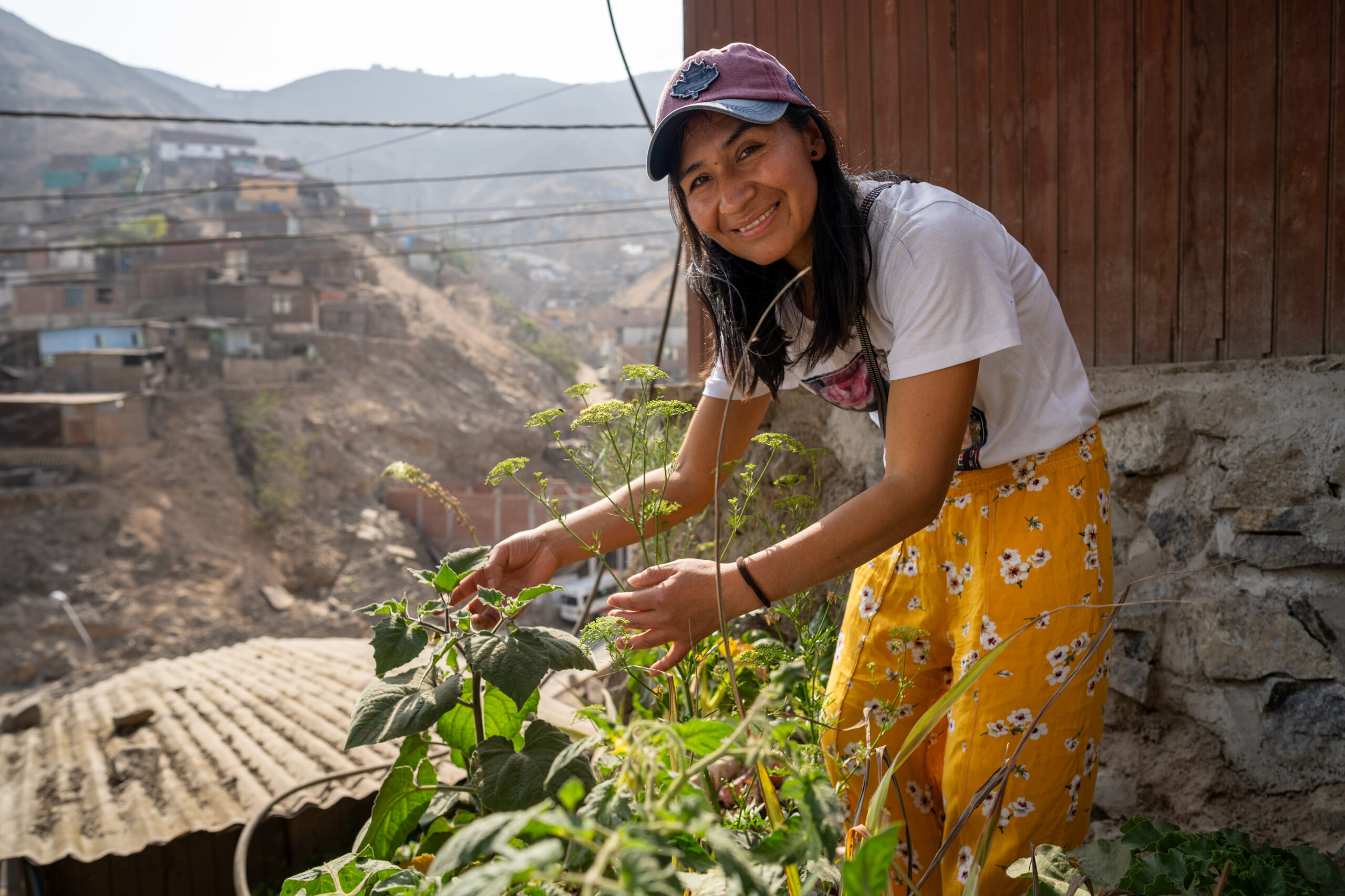Project helping to increase agricultural knowledge, food security, and environmentally sustainable development closes in Peru
Story

After two years helping increase the food and environmental security for thousands of underserved people in and around Lima, Peru, the MUSA (Mujeres Unidas por la Seguridad Alimentaria y Ambiental/The Women United for Food and Environmental Security) project, is closing.
During the COVID-19 pandemic lockdowns, many people in Peru were left without an income and no way to provide for their families. It was during this period that women in communities across Lima began organizing communal kitchens to ensure that families received at least one decent meal a day.
In 2022, Peru experienced a political and food crisis that has had adverse effects. The fluctuation of food prices, together with political discontent, has created an atmosphere of insecurity. People living in rural areas of Lima have experienced difficulties in accessing fresh fruits and vegetables due to flooding and water shortages.
To help address this, Cuso International has been working alongside local partners organizations CENCA, INGEC, MOCICC, UNALM, Nubes, RAE Peru, and Slow Food in Peru. The MUSA project linked women leaders and trained women farmers who in turn could go on to train others and share practical agricultural knowledge to improve food production from their urban gardens. go on to train others and share practical agricultural knowledge to improve food production from their urban gardens.
Some of the programs many achievements include:
- 320 women from communal kitchens trained in the implementation of urban gardens
- 4,500 families benefited from fresh vegetables
- 65 community gardens implemented in 9 districts of metropolitan Lima and Callao
- 15 farmers’ organizations market their products
- 5 meetings held with authorities, representatives of community kitchens and urban farmers
- 33 women, including farmers and representatives of community kitchens, participated in the “Women and Agroecology” meeting
This includes Olinda, who has transformed her life thanks to the training provided by the program. Along with her husband José and their neighbour Betty, Olinda developed a community garden using buckets to water the plants at night.
The training Olinda received also helped her with improving her home by building a reinforced foundation for a prefab house. Additionally, Olinda has been able to improve her community by sharing her knowledge with others.
Olinda had the opportunity to travel to Cusco where she participated in an internship and learned how to work together to create sustainable solutions. She also learned about rainwater harvesting, an important aspect for Olinda and her community as Lima is a desertic city and water scarcity is experienced in her district. In Cusco, she discovered how they have managed to create ponds and store water for over 20 years, a valuable lesson she has integrated into her own garden project.
“I learned many things, including water sowing and harvesting. Going to Cusco was a very beautiful experience because I learned things that I can implement in community gardens,” said Olinda.
Lola, who is farming in the Villa El Salvador district, loves seeing lush vegetation where there was once just dirt and pollution.
“The gardens become a green area in the city, and that was lacking in Villa El Salvador,” she said. “Above all, the most important thing, we’re learning to generate our own food.”
She feels empowered by taking part in the garden, knowing she is directly involved in addressing food insecurity, while combatting climate change.
“What’s better than being able to create our own gardens and teach the other ladies so that they can also learn to cultivate family agriculture?” she said.
MUSA is part of Cuso international’s Sharing Canadian Expertise for Inclusive Development and Gender Equality (SHARE) program. Funded by Global Affairs Canada (GAC), SHARE helps improve the economic and social well-being of underserved people.